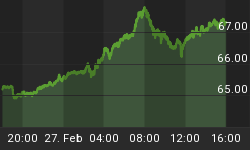After a slow start to the year, the stock markets are running riot again and taking out new highs every few days. With valuations sky-high, it’s time for investors to consider putting some of their money into budding technologies that are potential hotcakes.
The research arm of investment banker Citigroup Inc. has recommended a group of technologies that it believes are at an inflection point of accelerated adoption. Some like anti-aging medicines or floating wind farms appear like they belong more to the realm of science fiction, yet, Citi says they could become a reality in a decade or even less.
Here’s a breakdown of some of the themes:
All-Solid-State Batteries
The current breed of electric vehicles features expensive Li-ion battery powertrains. They are also quite clunky and require frequent charging which limits their applications in heavy commercial vehicles and high-end models. These are the key reasons why EVs are still unable to compete an even keel with their dirtier but more versatile gasoline-powered cousins.
And now all-solid-state batteries are being touted as a replacement that will increase the appeal of EVs and accelerate their market uptake.
According to analyst Arifumi Yoshida, all-solid-state batteries’ selling points include long discharge cycles and short charge times compared to Li-ion batteries; higher energy density and power; miniaturization; better safety; resistance to leakage and combustion; resistance to degradation due to better temperature properties and better design flexibility. Related: China’s Economic Boom Is Losing Momentum
Vacuum maker Dyson and high-end EV manufacturer Fisker Emotion are looking to use solid-state batteries in their EV lineups in a few years’ time.
Anti-Aging Medicines
Analyst Yigal Nochomovitz has highlighted “very recent” scientific breakthroughs that have given better insights into the human aging process. Such progress could spawn a host of FDA-approved therapeutics over the next decade with the primary objective of keeping people younger and alive longer.
"With scientific breakthroughs emerging this decade on the cellular origins of why the tissues in our body's age, novel anti-aging medicines may become one of the next big disruptions in the healthcare market," Nochomovitz wrote.
Unity Biotechnology and Calico (a Google venture) are some of the leading biotech companies leading the charge in developing therapies that will extend the human lifespan and enable a life free of age-related diseases.
5G Technology
Telecom titans are busy preparing for the advent of 5G in the current year, a technology that Citi says has the potential to change the way people work and interact both at the workplace and at home.
According to analyst Michael Rollins, machine to machine (M2M) connectivity as well as the Internet-of-Things have allowed wireless carriers to dream of tapping a much larger addressable market well beyond the smartphone market. Rollins says that with 5G technology, the current trend of creating small private networks that’s augmented with limited wireless or Wi-Fi networks could be reversed due to its lower installation and maintenance costs.
Related: Facebook Two Years Away From 100% Renewable Energy
IoT is set to revolutionize global connectivity, with a 2015 McKinsey study predicting that the market will nearly triple in size from $4 trillion in 2015 to $11 trillion by 2025.
Membrane Filtration Technology
Though not one of Citi’s picks, it’s worth looking at a modern liquid separation technology as another potential game-changer that could make early-in investors rich.
Consider that every day U.S. companies consume vast amounts of energy to tease apart chemicals to manufacture food, beverages, fuel and drugs.
According to Shreya Dave, co-founder of Via Separations, that amounts to 12 percent of the country’s energy consumption and 80 percent of the cost of manufacturing a typical chemical. That’s the case because liquid separation has remained largely unchanged in more than a century, and typically involves using heat to boil and condense chemicals into a purer form in a wasteful and time-consuming process. Filtering liquids using a membrane is much more efficient.
The biggest challenge, however, has been finding one that’s stable enough not to react with the liquids it’s supposed to filter. Via Separations says they have discovered a membrane made from oxidized graphite that’s both pliable and chemically stable enough. MIT’s venture fund/accelerator/laboratory, The Engine, is working in collaboration with the startup to align their products with market needs and cut time-to-market.
By Michael Kern for Safehaven.com
More Top Reads From Safehaven.com
















